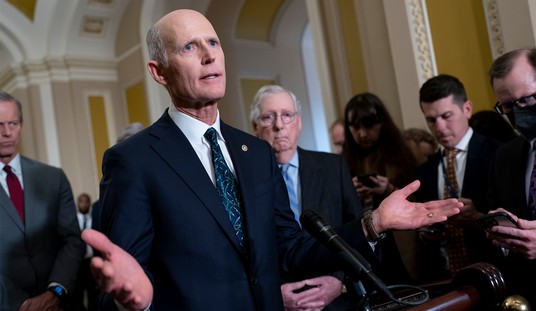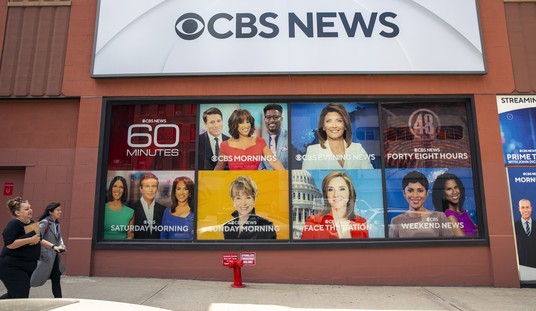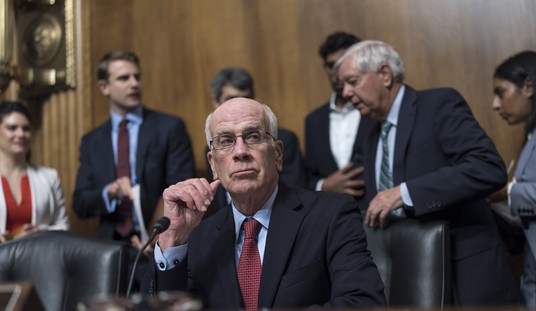Media Matters for America is pulling out all the stops to support the nomination of Elena Kagan to the Supreme Court. I dared to write a blog post criticizing Elena Kagan’s lifetime of anti-gun activism as evidence of the way Kagan would act and vote as Supreme Court justice. Media Matters targeted a few of my claims to criticize, yet they ignored the meat of my blog post. Media Matters wants Americans to think that Elena Kagan is not hostile to the 2nd Amendment — that claim does not pass the laugh test no matter how many times they write it. Liberals need to be honest and say that they don’t believe that the Second Amendment should be an individual right incorporated against the states, therefore they support a nominee who believes the same.
Media Matters for America argued in a blog post the following:
Writing on RedState.com, the Heritage Foundation’s Brian Darling rehashed a variety of debunked myths to claim that Elena Kaganis “anti-Second Amendment” (criticizing Media Matters by name in the process). We’ve debunked most of these claims multiple times before, and we stand by those responses.
They claim to have “debunked” most of the claims against Kagan numerous times, yet they have no response for the argument that Kagan’s anti-gun activism during her time with the Clinton Administration is evidence of the way she will vote on the Supreme Court. I wrote for Red State the following:
When Kagan served the Clinton Administration, she showed a strong hostility to gun rights. The L.A. Times reported on may 11th of this year that Kagan“drafted an executiveorder restricting the importation of certain semiautomatic assault rifles.” Kagan’s political activism in implementing a gun control agenda was a political act, yet this nominee has yet to explain her constitutional justification for that executive order. The L.A. Times further reported that “gun-control efforts were a hallmark of the Clinton Administration.” Many conservatives would argue that an individual who works diligently on gun control efforts evidences a hostility to the right of all Americans to defend themselves with a firearm. Another gun control initiative by Kaganwas her drafting of ”an executive order that required all federal law enforcement officers to install locks on their weapons.” This is further evidence of an individual who has no sympathy for Second Amendment rights.
Media Matters has no response to the claim that Kagan’s extensive efforts to restrict access to guns during her time in the Clinton Administration is evidence of hostility to the Second Amendment. In all probability, they agree with Kagan’s restrictive view of gun rights.
They also had no response to the argument that her testimony proved to be disturbing to those who believe in the 2nd Amendment. During the Senate Judiciary Committee hearing earlier this week, Senator Chuck Grassley (R-Iowa) and General Kagan had the following exchange.
Grassley: So whether you personally believethat Heller’s — or the right to bear arms is a collective or an individual right will have no bearing in the future, but you — you don’t want to tell us what your own personal belief is. That’s kind of what I’m asking.
Kagan: Well, my approach in these hearings has been not to grade cases, even if I thought I had the wherewithal to grade them, which I am not sure I do in Heller, just because the case is based so much on history which I’venever had an occasion to look at. I know that the — the scholarship in this area has suggested that there’s a very strong view that — that there is an individual right under the Second Amendment. And certainly, Justice Scalia’s opinion, which is a very thorough opinion for the court, is entitled to all the weight that any precedent has going forward.
If we accept the argument that Kagan will act on the Court like Sotomayor, then we can make a credible claim that Kagan will vote to overturn the Heller case and vote in a manner to gut limit the McDonald Case. Not surpisingly, Sotomayor signed onto an opinion in a recent case, McDonald v Chicago, where she argued that the history did not support the holding in the landmark Second Amendment case DC v Heller. The Heller case held that the Second Amendment is an individual right. The McDonald case held that the 2nd Amendment applies to the States. Justice Sotomayor, after testifying before the Senate Judiciary Committee that she recognized Heller as precedent (much like Kagan did this week), signed an opinion arguing to overturn Heller. That is merely one argument to add to a long list of arguments and facts that indicate the conclusion — Elena Kagan is hostile to the 2nd Amendment to the U.S. Constitution.
David Kopel wrote in the Washington Times that Sotomayor voted with members of the court to vacate the holding in Heller:
Perhaps the most startling aspect of the Supreme Court opinions in McDonald v. Chicago was the dissenters’ assault on District of Columbia v. Heller. Not only did Justice Stephen G. Breyer vote against extending the Second Amendment to state and local governments, he also argued forcefully and at length for overturning Heller and, therefore, for turning the Second Amendment into a practical nullity. Ominously, Justice Sonia Sotomayor joined the Breyer dissent – contradicting what she told the U.S. Senate and the American people last summer.
Media Matters does not dispute the view that Kagan will vote like Sotomayor. Maybe they agree with Sotomayor that Heller is precedent based on faulty reasoning and an incorrect read of the historical record of the 2nd Amendment. Conservatives believe that Americans have a natural right to own a firearm and the Constitution recognizes that natural right in the 2nd Amendment. Does Media Matters subscribe to that view? I doubt it. They are attempting to redefine the 2nd Amendment in a manner that allows individuals like Elena Kagan to qualify as pro-Second Amendment. They believe that the 2nd Amendment recognizes the right of states to raise a milita and no more. If liberals interpretation of the Second Amendment was the law of the land, there would be no right for individuals to have a firearm for self-protection. If Elena Kagan is elevated to the Supremes, is there any doubt that she would vote for a restrictive interpretation of the 2nd Amendment? There is no evidence to believe otherwise.
If you study the below give and take between Senator Grassley and Elena Kagan, there is further evidence that she is unwilling to discuss her personal views of the 2nd Amendment.
Grassley: The court said in Heller, quote, “It has always been” — and I guess I would put emphasis upon the word “always” — “It’s always been widely understood that the Second Amendment, like the First and Fourth, codified a pre-existing right.” Do you believe that the Second Amendment codified a pre-existing right? Or was it a right created by the Constitution.
Kagan: Senator Grassley, I’ve — I’venever really considered that question, as to whether the Second Amendment right…
Grassley: Well, it’s basic to our Declaration of Independence that says we’re endowed by our creator with certain — certain individual rights, among them, you know, what it says, and we aren’t endowed by our government. So the question here is, are we endowed by our Constitution with this right or did it exist before the Constitution existed?
Kagan: Well, Senator Grassley, I do think that my responsibility would be to apply the Constitution as understood and previously applied by the court, and that means as understood and — and interpreted by the court in Heller, and that’s what I would do. So I think that the — the fundamental legal question would be whether — that a case would present would be whether the Constitution guarantees an individual right to bear arms, and Heller held that it did, and that’s good precedent going forward.
Kagan claimed that she had never considered the debate as to whether the freedom to posses a firearm is a right granted by the Founders or a pre-existing natural right. How is this possible, when she had written memos to Justice Thurgood Marshall dealing withthe Second Amendment, she had drafted executive orders for President Clinton dealing with the Second Amendment and met with attorneys in the McDonald case dealing withthe Second Amendment? Kagan should take some time to consider this question and provide answers to Senators in writing after she has time to consider the two views. It is likely that this is the last we will hear from Elena Kagan on this issue until she sides with Justices Breyer, Ginsburg and Sotomayor for the proposition that Heller and McDonald were wrongly decided.
Media Matters takes aim at my claim that Kagan not taking a position in the McDonald case is further evidence of anti-gun sentiment that will come to fruition on the High Court.
But there’s one claim Darling made that we haven’t dealt with for more than a month because it was proven to be so utterly false that almost no one has bothered to even raise it again until now: The claim that Kagan’s decision not to file a brief in the Supreme Court case regarding Chicago’s gun rights shows an anti-Second Amendment bias.
As I argued in my piece:
If Elena Kagan does believe that the constitution protects 2nd Amendment rights, then why did she not file a brief in the McDonald case? This is evidence that Kagan was seeking to hide her views on the Second Amendment in anticipation of a potential nomination for the next opening on the Supreme Court. The holding in the McDonald case opens up judicial attacks on many federal and state gun laws as applied to the residents of the different states, yet Kagan found no federal interest compelling the federal government to file a brief. Kagan’s inaction on that case is further evidence of a hostility to the right to “keep and bear Arms.” In three jobs where Kagan had a responsibility to respect the 2nd Amendment rights of all Americans, Kagan chose to work against those constitutional protections.
Media Matters argues the following:
First, how in the world does not filing a brief in the case establish Kagan’s supposed “hostility to Second Amendment rights”?
Clearly, it is possible that as Solicitor General Elena Kagan thought it prudent not to file a brief that may inhibit her ascention to the U.S. Supreme Court. The lack of filing a brief is evidence that she did not want to show her views on the Second Amendment. If she had filed a brief, she would havehad to defend those views if an opening ever occurred on the Court. An opening did occur.
It is my understanding that Kagan met with attorneys representing harmed parties in the McDonald case and decided not to file a brief. If the Solicitor General had no interest in the case, why did the Solicitor General’s office meet with counsel? We don’t have documents indicating why the the Solicitor General’s office failed to file a brief, but clearly it was something within the purview of the office.
The Office of the Solicitor General’s web site states:
The task of the Office of the Solicitor General is to supervise and conduct government litigation in the United States Supreme Court. Virtually all such litigation is channeled through the Office of the Solicitor General and is actively conducted by the Office. The United States is involved in approximately two-thirds of all the cases the U.S. Supreme Court decides on the merits each year. The Solicitor General determines the cases in which Supreme Court review will be sought by the government and the positions the government will take before the Court. The Office’s staff attorneys, Deputy Solicitors General and Assistants to the Solicitor General, participate in preparing the petitions, briefs, and other papers filed by the government in the Supreme Court. The Solicitor General conducts the oral arguments before the Supreme Court. Those cases not argued by the Solicitor General personally are assigned either to an Assistant to the Solicitor General or to another government attorney. The vast majority of government cases are argued by the Solicitor General or one of the office attorneys.
In the McDonald case the Solicitor General could have filed a brief in the matter. There was a federal interest involved in a case that incorporated the federal constitutional guarantee of the right to “keep and bear Arms” against a state.
Media Matters further argues that
In fact, as the Constitutional Accountability Center’s Dough Kendall has noted, the Solicitor General’s brief in Benton v. Maryland did not even mention the incorporation issue. Kendall also noted that, contrary to Blackwell and Klukowski’s assertion, the Solicitor General actually “has a tradition of not weighing in on incorporation cases at all, regardless of where it may stand on the merits of the case.”
Kendall qualified that statement by pointing to a case when the Solicitor General did file a brief in an incorporation case:
I don’t want to overstate this. We did find one brief filed by George W. Bush Solicitor General Paul Clement in a case called Cutter v. Wilkinson that argued for incorporation in defending the constitutionality of a federal statute, and I think the federal government does havea very important interest in making sure that constitutional rights, including the Second Amendment, apply against the states in the same manner that they apply against the federal government.
Kendall’s piece shows that the Solicitor General can and has filed a brief in cases dealing with incorporation. In the light of General Kagans nomination to the Supreme Court, I think it is perfectly reasonable to conclude that political motivations may have been considered. If you take Kagan’s lack of filing in the abstract, then maybe you could conclude no ill will toward the 2nd Amendment, yet Kagan’s long history of anti-gun activism leads this analyst to conclude the contrary. Taking into consideration Kagan’s memo to Justice Thurgood Marshall stating to personal “sympathy” for a litigant in a Second Amendment claim and her long list of anti-gun activities during the Clinton Administration, it is reasonable to attribute Kagan’s lack of filing a brief in McDonald case as further evidence of hostility to the 2nd Amendment.
Media Matters ends with this claim:
Moreover, the claim in Darling’s post that the Supreme Court was considering “whether Chicago’s restrictive gun ban is constitutional” is also wrong. The plaintiffs in the case asked the Supreme Court to answer one question: “Whether the Second Amendment right to keep and bear arms is incorporated as against the States by the Fourteenth Amendment’s Privileges or Immunities or Due Process Clauses.” And the Court’s holding answers that one question: saying that the right to keep and bear arms does apply to state and local governments. The Court never dealt with the question of whether Chicago’s ban is constitutional. Rather, the Court remanded the case to the lower courts to determine that issue.
The holding in McDonald caused the City of Chicago to repeal the statute in question and replace with a new statute this week. I stipulate to the point that the holding in the case answers the question of “whether the Second Amendment right to keep and bear Arms is incorporated as against the States by the Foureenth Amendment’s Privileges or Immunities or Due Process Clauses.” This case has been remanded for a disposition on the application of the statute to the 2nd Amendment. The Petitioner’s Brief in the McDonald case cites the following record of the case:
On June 26, 2008, Petitioners filed suit in the United States District Court for the Northern District of Illinois challenging Chicago’s handgun ban, reregistration and pre-acquisition registration requirements, and non-registrability penalty, as violating their Second and Fourteenth Amendment rights.
Media Matters is correct in the statement of the holding of the case, but the case has now been mooted by the City of Chicago changing the law. This new statute will be the subject of new litigation and Elena Kagan may be on the Supreme Court to help decide the constitutionality of this new Chicago law. The error does not mitigate the fact that Media Matters is attempting to fool the American people when they claim that Kagan is not hostile to the 2nd Amendment. My challenge to Media Matters is to cite one instance of Elena Kagan supporting an expansive view of the 2nd Amendment. Cite one piece of evidence that she would not agree with Justice Sotomayor that Heller was wrongly decided. Show me where Kagan defended the right of an American to own a firearm. I bet Media Matters will respond with the same response they have had to all of the substantive claims of my blog post – with this.













Join the conversation as a VIP Member